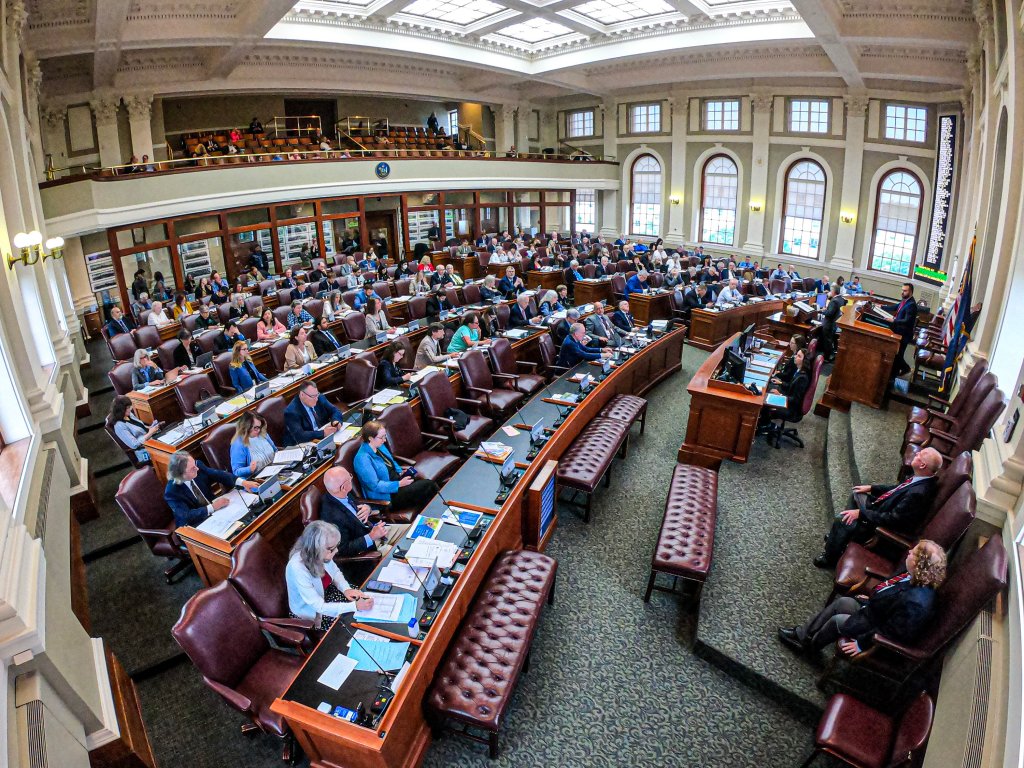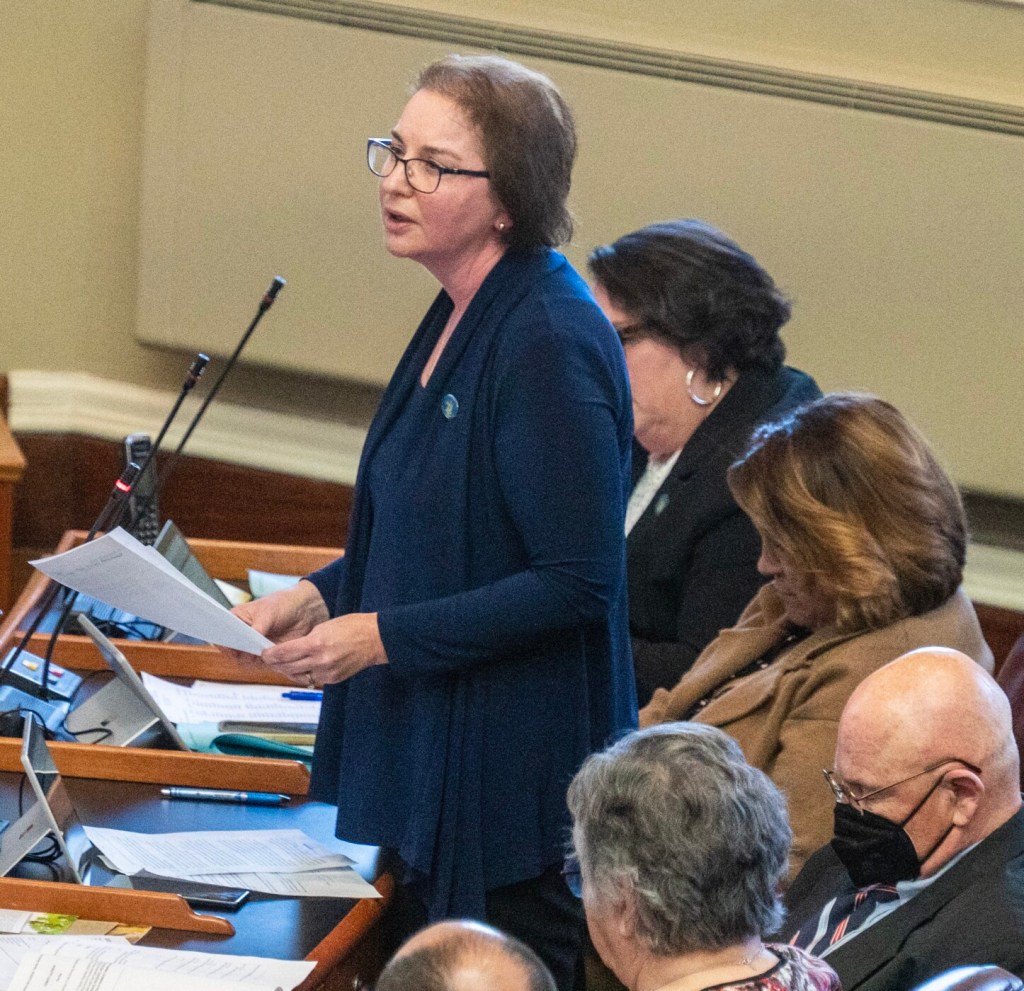
Hundreds of new Maine laws will take effect Wednesday, bringing changes to economic, housing and education policy, crime statutes and health care, among other things.
They include laws allowing doctors to keep their names off prescription labels for abortion medication, protections against the online harassment of children and requirements for more transparency around concert ticket sales. Others direct schools to come up with policies for cellphones and increase state penalties for violations of pesticides rules.
All are among close to 500 laws that passed in the session that ended June 25. Over 50 measures already took effect after being passed as emergencies, meaning they had two-thirds support in the Legislature. Those included Gov. Janet Mills’ bill to safeguard against extreme weather and boost storm preparedness, and a spending plan to address the need for more public defenders.
Some regulations, such as an increase in the cigarette tax from $2 per pack to $3.50 and a minimum wage for agricultural workers, won’t take effect until January.
But the bulk of laws approved last spring will take effect Wednesday, which marks 90 days since the Legislature adjourned.
That also includes the $320 million Part 2 budget that closes a MaineCare deficit, invests in child care and increases funding for nursing homes. The supplementary spending package followed Democrats’ passage of an $11.3 billion two-year baseline budget in March.
Here is a closer look at some of the other new laws taking effect Wednesday:
Right of first refusal for mobile home park sales
A handful of new laws are aimed at better protecting mobile home park residents from excessive rent increases. LD 1145 gives residents the “right of first refusal” when their parks go up for sale by requiring that owners sell to them if their offer is at least at the same price and has “substantially equivalent terms and conditions” as what the owner is asking for.
Another law, LD 1016, will facilitate such purchases by establishing a permanent state fund to help residents purchase parks.
Also taking effect is LD 1723, which some park owners have used to justify recent rent increases by falsely stating that it will limit their ability to raise prices in the future. That law – while originally proposed as a rent control measure – was changed to require 90-days notice for rent increases. Residents are also allowed to bring owners to mediation over rent increases, though owners are not required to limit increases as a result.
Doctors can keep names off abortion pill prescription labels
LD 538 allows doctors and other providers who prescribe medications used to perform abortions to keep their names off prescription labels. Maine joins a handful of states that have already passed or are considering similar laws, including New York, Illinois and Washington.
Advocates say the change will protect doctors who prescribe mifepristone, misoprostol and their generic alternatives against legal risks and attacks and builds upon other protections that were approved last year for providers of abortion and gender-affirming care.
“Without this additional protection, medical professionals in Maine, who are already being targeted by states seeking to criminalize care, remain vulnerable to legal intimidation,” Rep. Sally Cluchey, D-Bowdoinham, the bill’s sponsor, said in March.
Protections against online harassment of children
Also taking effect Wednesday is a new law to protect children from online harassment and “doxxing” by allowing families to file a lawsuit or seek a protection from harassment order.
The bill was brought forward by Rep. Melanie Sachs, D-Freeport, after she said a student in her community was targeted online by an adult and the family had no recourse. It was proposed before Rep. Laurel Libby, R-Auburn, was censored for posting a photo of a transgender student on Facebook as part of her criticism of transgender athletes in girls sports, though that incident generated more interest in the bill from lawmakers and the public.

“This bill would provide a much-needed legal pathway for families to protect their children from doxxing and intimidation,” Sage Sculli, a senior at Gardiner Area High School, told lawmakers in March.
Preventing ticket price gouging, raising pesticide fees
LD 913 aims to prevent price gouging on tickets for concerts and theater. It requires ticket sellers to clearly disclose all fees upfront. It also bans the use of bots to bypass ticket limits and fake websites that mimic real venues.
It prohibits vendors from selling speculative tickets — tickets they don’t already own or that haven’t gone on sale yet — and requires resellers to issue refunds for counterfeit tickets. And it says resellers cannot add more than 10% to the original price of the ticket, including taxes and fees.
Another bill, LD 1697, will increase state fines for improper pesticides use and comes in response to a high-profile case out of Camden in 2022. In some cases where violators are found to have “benefited substantially,” such as by increased property values, from the violation, maximum penalties can now go up to $50,000, or more if multiple offenses occur within four years.
Schools must adopt policies on cellphones, temperature
Under LD 1234, schools have until Aug. 1, 2026, to adopt policies related to the use of personal electronic devices during the school day. Though the bill started as a requirement for all schools to prohibit cellphones in classrooms, its sponsor, Rep. Dick Campbell, R-Orrington, said it was changed through the legislative process.
Campbell said the idea came to him from a group of teachers in Bucksport, and he said they’re happy with the outcome even though it’s not what was originally proposed. “It’s important to allow local control,” he said.
Another new law, LD 11, requires school boards to establish policies for minimum and maximum temperatures in school buildings. Sen. Rick Bennett, I-Oxford, the bill’s sponsor, told fellow lawmakers in April that temperature can have a significant impact on students’ abilities to learn.
“For our children’s future, and the future of our state, having a temperature range for learning will help ensure that our students are able to learn in a comfortable and safe environment,” Bennett said.

We invite you to add your comments. We encourage a thoughtful exchange of ideas and information on this website. By joining the conversation, you are agreeing to our commenting policy and terms of use. More information is found on our FAQs. You can modify your screen name here.
Comments are managed by our staff during regular business hours Monday through Friday as well as limited hours on Saturday and Sunday. Comments held for moderation outside of those hours may take longer to approve.
Join the Conversation
Please sign into your CentralMaine.com account to participate in conversations below. If you do not have an account, you can register or subscribe. Questions? Please see our FAQs.